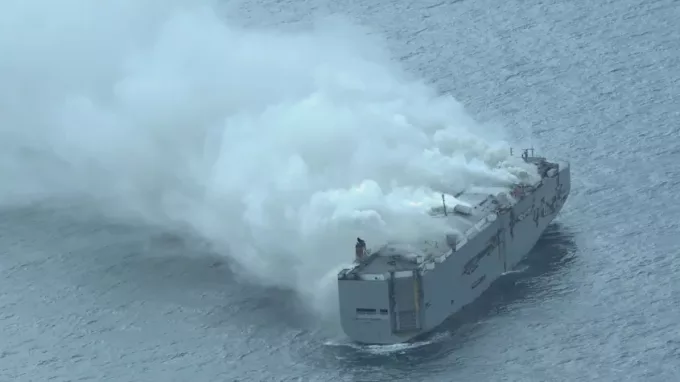Congestion at box ports still plaguing Europe's inland waterways
Worsening weather can wreak havoc on inland container networks across northern Europe, leading to surcharges, ...

Liner lobby group the World Shipping Council (WSC) yesterday launched a new cargo safety project, aimed at reducing the risk of fire onboard ships.
The WSC promised a renewed focus on misdeclared shipments – identified by safety experts as one of the most common causes of vessel fires – with its new Cargo Safety Program, a digital solution comprising a common screening tool, verified shipper database and a database of approved container inspection companies.
The system will be operated ...
Outlook for container shipping 'more uncertain now than at the onset of Covid'
Transpac container service closures mount
Shippers warned: don't under-value US exports to avoid tariffs – 'CBP will catch you'
Cancelled voyages take the sting out of spot rate declines this week
New Houthi warning to shipping as rebel group targets specific companies
K+N CEO unveils impact of US import tariffs on China-origin goods
Blanked sailings in response to falling demand 'just a stop-gap solution'
CMA CGM to reflag box ship as the French carrier eyes growing Indian market


Comment on this article
Pichuiyer Balasubramanian
September 29, 2023 at 1:47 pmI wish this includes air transportation as well.